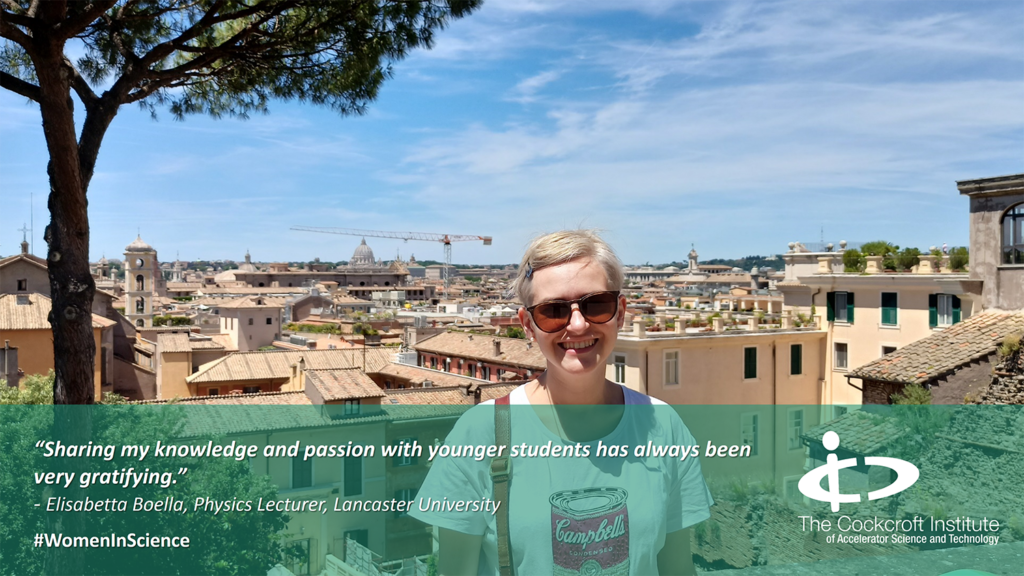
Since a very early age, I have always had a preference for scientific subjects. I remember that already in High School I wanted to become a scientist, even though at that time I did not know exactly what it meant. Following my interest, after high school, I chose to enrol in a degree in nuclear engineering at Politecnico di Torino, one of the most prestigious and competitive universities in Italy.
I approached the field of plasma physics at the end of my Bachelor degree. At that time, a project attracted my attention because it was innovative and had great potential outcomes: ion acceleration in laser-driven plasmas for medical applications. I enjoyed working on this topic very much and so a couple of years later I decided to investigate the subject further in the framework of my Master thesis. During the development of the thesis, I had the opportunity of spending few months in one of the most important research centres in the USA, the Los Alamos National Laboratory. It was a formative experience; it made me learn the meaning of collaborating within a research team. There, I fully realised that I wanted to pursue a career in research in plasma physics and laser-plasma interaction. Thus, I applied for a PhD programme that allowed me to spend time at Politecnico di Torino (Italy), where this passion was born, and at Instituto Superior Técnico (Portugal), where the Group of Lasers and Plasmas (GoLP), one of the most renowned teams in the field, was based. Joining GoLP was a life-changing experience: carrying out research on the topic of my interest in one of the most prominent centres in Europe broadened my horizon and perspectives. The young and eclectic environment of GoLP contributed not only to my professional growth, but also to my personal one, thanks to the development of what are referred to as soft skills, absolutely essential in an international and multi-cultural context, as the one of GoLP.
“Sharing my knowledge and passion with younger students has always been very gratifying.”
Elisabetta Boella
As a young researcher, I have understood very soon the fundamental role of mobility for enhancing the personal and professional growth. So, after my PhD, I joined the Centre for Mathematical Plasma Astrophysics at KU Leuven (Belgium). Here, I had the opportunity to acquire new knowledge and expertise on computational modelling of plasmas. I also got the chance to teach and co-supervise Master students for the first time. I found this experience challenging, but very rewarding. Sharing my knowledge and passion with younger students has always been very gratifying. This for me was another confirmation that I wanted to pursue an academic career. Therefore, after this experience, I took up the challenge of becoming a lecturer in physics at Lancaster University. Here, my research investigates novel acceleration techniques based on laser-driven plasmas. My studies are providing meaningful contributions to a worldwide effort for a transformational change towards more compact and affordable accelerators, which could enable a plethora of new beneficial applications for society: from cancer therapy to future sources of fusion energy.
I am a strong advocate of inclusion. At Lancaster University, I lead the Inclusion in Physics group. I organise workshops to promote equality and diversity in physics. Many of these workshops aim at improving the underrepresentation of women in the field. By inviting female scientists to share their experience, I hope to convince young students to pursue a career in physics. I also lead a school engaging programme. Within this initiative, I visit high schools and try to convey to pupils, especially girls, my contagious passion for physics.
